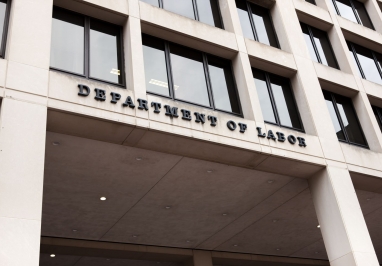
When statutes and administrative rules were written for labor laws, it’s probably a safe bet that lawmakers weren’t envisioning a pandemic. As a result, many legal requirements weren’t drafted in anticipation of large portions of the workforce working from home for extended periods of time. On December 29, 2020, the Department of Labor issued two Field Assistance Bulletins, which address some questions that have arisen over the last several months, namely:
- When can required notices and posters be provided to employees working remotely electronically via email, internet, or intranet since they’re not coming into the office? (FAB 2020-7)
Short Answer: It depends on the statute at issue, the type of notice required, and a lot of other individual factors specific to the business and employees at issue. But, given the current situation, electronic notices to employees should likely be considered in addition to current physical posting requirements for most laws. Unless your workforce is entirely remote, it is unlikely that electronic notice alone will be sufficient for many statutes – physical posting will likely still be required.
When electronic notice is provided, employers should document the steps they took to provide the notices electronically (e.g., delivery and read receipts, copies of the emails sent to employees with the notices/posters, copies of the intranet postings, etc.).
- The definition of a “serious health condition” under the Department of Labor’s governing regulations for the federal Family Medical Leave Act (FMLA) can require in-person medical visits in certain circumstances. In fact, 2008 regulations specifically state that phone calls, letters, emails, or text messages are not included in the definition of “treatment by a health care provider,” which the Department has described as an “in-person visit to a health care provider.” So, does a telemedicine visit count as in-person treatment? (FAB 2020-8)
Short Answer: So long as the telemedicine visit meets the following three requirements, it’s likely that it will be considered an “in-person visit” by the Department of Labor:- An examination, evaluation, or treatment by a health care provider;
- Be permitted and accepted by state licensing authorities; and
- Generally, be performed by video conference.
Links to each of the Field Assistance Bulletins are included above, and we encourage you to read these short guidance documents. As always, if you have additional questions on these topics, please reach out to a member of our Labor & Employment Law Practice Group. Please subscribe to our Labor & Employment E-Briefs to keep up with the latest HR news, tips, and updates.
Woods Aitken’s Coronavirus Resources Page includes valuable information regarding the coronavirus pandemic and our publications on COVID-19. We encourage you to visit this page often for updates.
